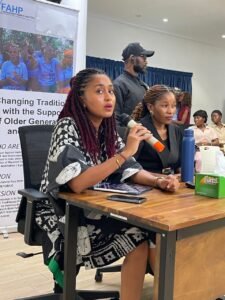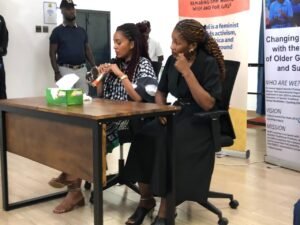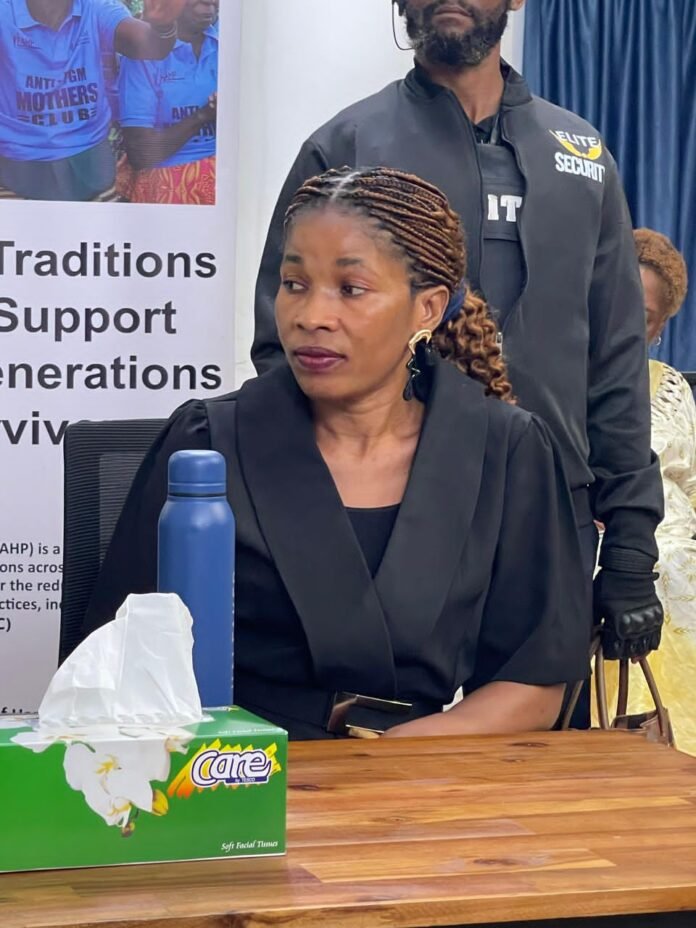By: Alimatu Kargbo
A young woman who survived a brutal act of female genital mutilation (FGM) in Sierra Leone has broken her silence, calling on the government to enforce a landmark ruling by the ECOWAS Court of Justice that found the state responsible for failing to protect her rights.
Kadijatu, now 24, was just 15 years old when she was forcibly subjected to FGM in Kondchutehun, Kenema District, on September 16, 2016. Her ordeal began after she reported an argument with a neighbor to a local sowei (a traditional initiator). As punishment, she was blindfolded, restrained, and cut without her consent. She was then held without food, water, or medical attention for days.

She was eventually rescued by a coalition of police officers, women’s rights activists, and a journalist. Even after receiving hospital care, continued threats from local soweis forced her into exile in Liberia, where she remained for three years.
“I was treated worse than an animal,” Kadijatu said during a press conference in Freetown on Tuesday, where she publicly shared her story for the first time. “Sometimes I feel like a chicken has more rights than a woman in this our Sierra Leone.”
With the support of feminist organization Purposeful and the Forum Against Harmful Practices (FAHP), Kadijatu filed a case against the state at the ECOWAS Court of Justice. On July 5, 2025, the court ruled that the Government of Sierra Leone had failed to uphold its human rights obligations and was responsible for the violations she suffered.
The court described FGM as a form of torture and condemned the government’s failure to protect girls and women from such harm.
Despite the ruling, Sierra Leone has yet to take concrete steps to implement the court’s decision or to deliver justice to Kadijatu.
Sierra Leone remains one of the few African nations without a law explicitly banning FGM. While the recent amendment to the Child Rights Act (CRA) raised hopes that the practice would be criminalized for children, Parliament later issued a public clarification stating that the Act “does not criminalize FGM.”
Human rights groups say this contradiction leaves young girls dangerously unprotected and undermines progress made toward ending the practice.
“The ruling from ECOWAS is clear: the government must take responsibility,” said a representative from FAHP. “This is a defining moment for Sierra Leone. We can either choose justice or we continue to fail our daughters.”

Kadijatu has authored a personal essay recounting her experience and demanding justice, which advocacy groups are urging local and international media to publish.
Her case, while extraordinary, is not unique. Thousands of girls in Sierra Leone continue to face the risk of being forcibly initiated into traditional societies where FGM is a rite of passage.
“I want justice, not just for me,” Kadijatu said, “but for every girl who is afraid to speak, who was never rescued, and who is still suffering in silence.”
As international pressure mounts, human rights advocates say the government must move quickly to comply with the court’s ruling, provide reparations, and finally outlaw FGM in all its forms.
Justice delayed is justice denied.




